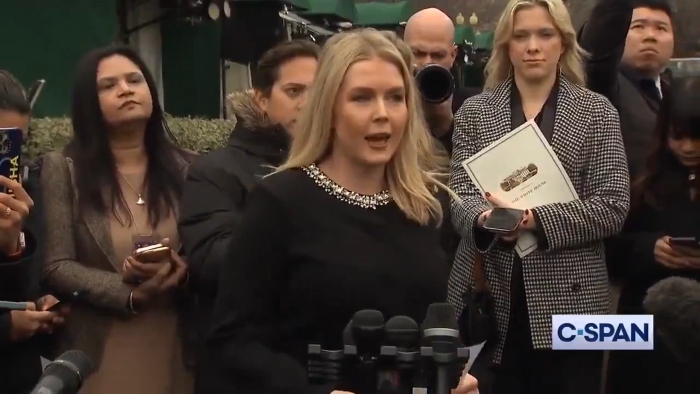White House Press Secretary Karoline Leavitt presented President Donald Trump’s new tax plan during a press briefing on Tuesday. The proposal features significant tax cuts for middle-class Americans and focuses on closing loopholes exploited by billionaire sports team owners and Wall Street executives.
“These are the tax priorities of the Trump administration that the president has laid out for members in that meeting today,” Leavitt said, noting that at the center of Trump’s tax agenda is the elimination of taxes on tips, Social Security benefits for seniors, and overtime pay—three key promises he made on the campaign trail. Additionally, Trump aims to renew his 2017 middle-class tax cuts while revising the state and local tax (SALT) cap, a topic that has sparked controversy in high-tax blue states.
Notably, his plan also targets the carried interest loophole, a tax break frequently used by hedge fund managers, and removes special tax deductions benefiting billionaire sports team owners. “These tax cuts will be the largest in history for middle-class working Americans,” Leavitt emphasized. “The President is committed to working with Congress to get this done.”
? WH Press Secretary Karoline Leavitt lays out President Trump’s amazing tax cut agenda.
“These tax cuts will be the largest in history for middle-class working Americans.” pic.twitter.com/ik9XqEzDNs
— USA Features Media (@UsaFeatures) February 6, 2025
Trump and congressional Republicans are moving forward with ambitious plans for broad tax reforms. A key element of their agenda is the extension of individual tax cuts from the 2017 Tax Cuts and Jobs Act (TCJA), which are set to expire at the end of the year. If extended, these cuts are estimated to add approximately $4 trillion to the federal deficit over the next decade, according to some reports, but other moves Trump is making to grow the economy should offset the loss of revenue, such as spending cuts.
The announcement comes as Trump gears up for another clash with congressional Democrats, who are expected to oppose certain aspects of the plan, particularly those related to state-level deductions and corporate tax structures. In addition to extending existing tax cuts, the administration is proposing new reductions.
The administration also seeks to reduce the corporate tax rate to 15% for domestic production, with the goal of boosting domestic manufacturing and investment. However, these proposals are creating divisions within the Republican Party. While the administration pushes for making the tax cuts permanent, some House Republicans express concerns about the long-term fiscal impact and are advocating for a more cautious five-year extension.



